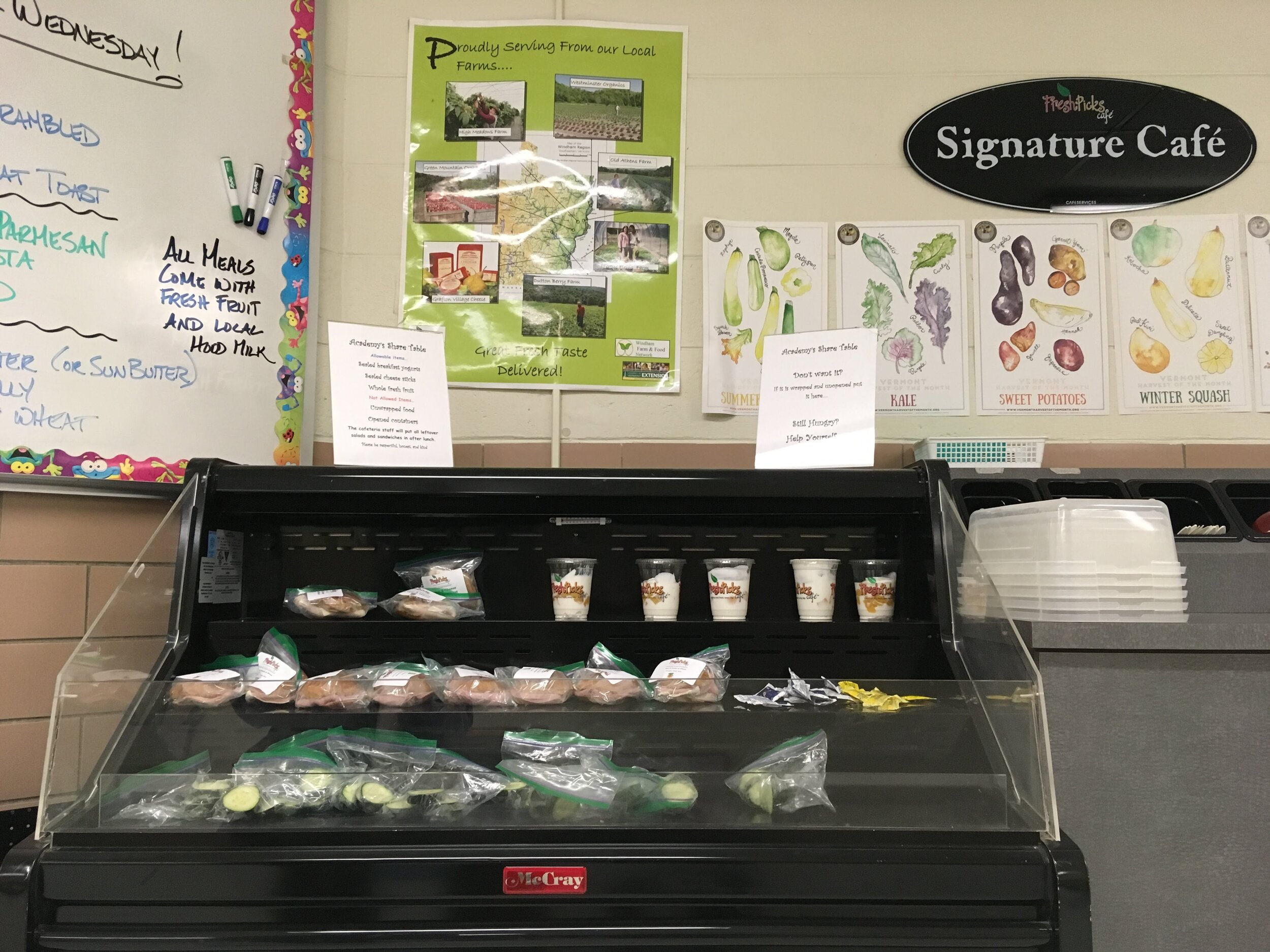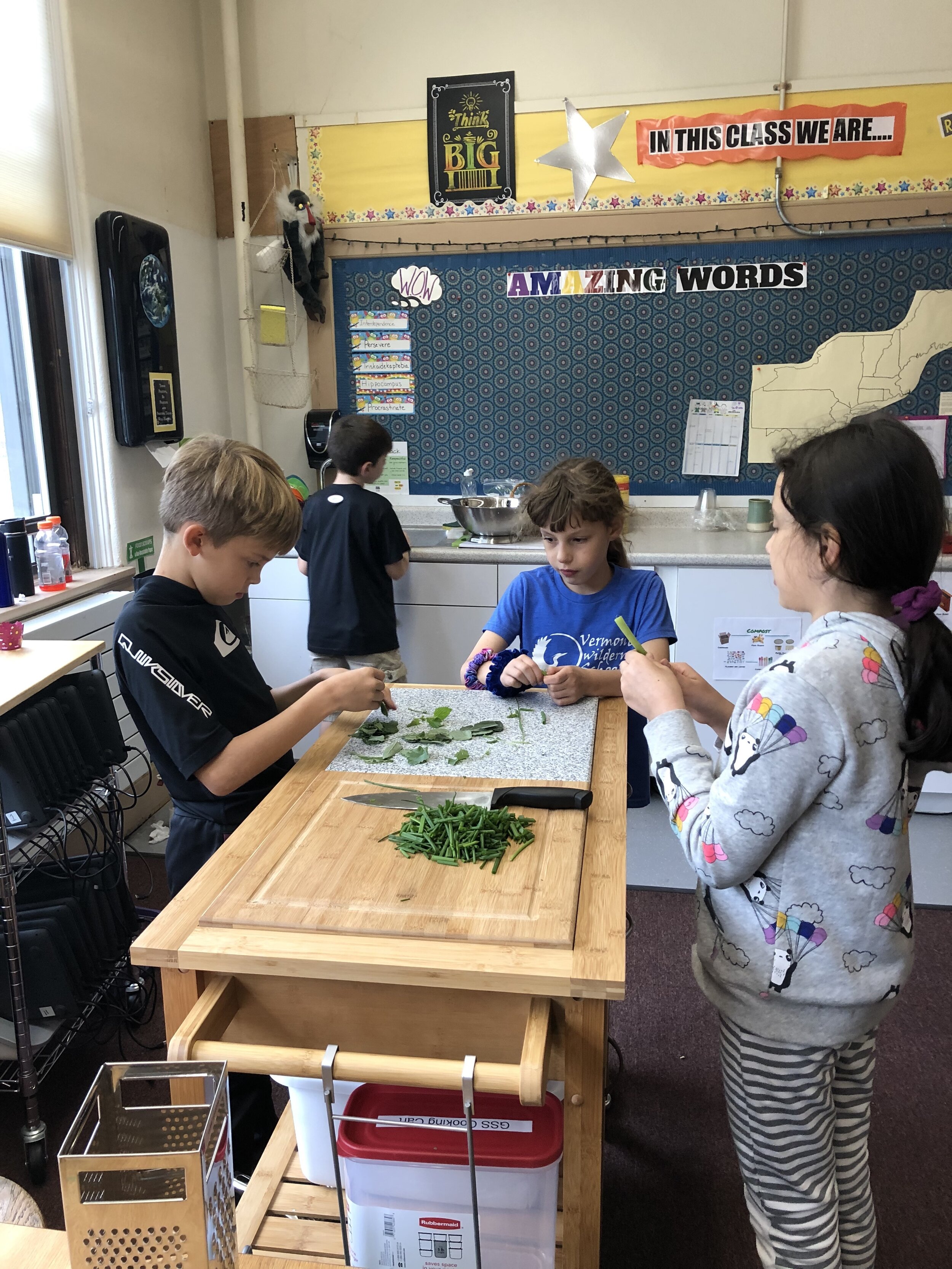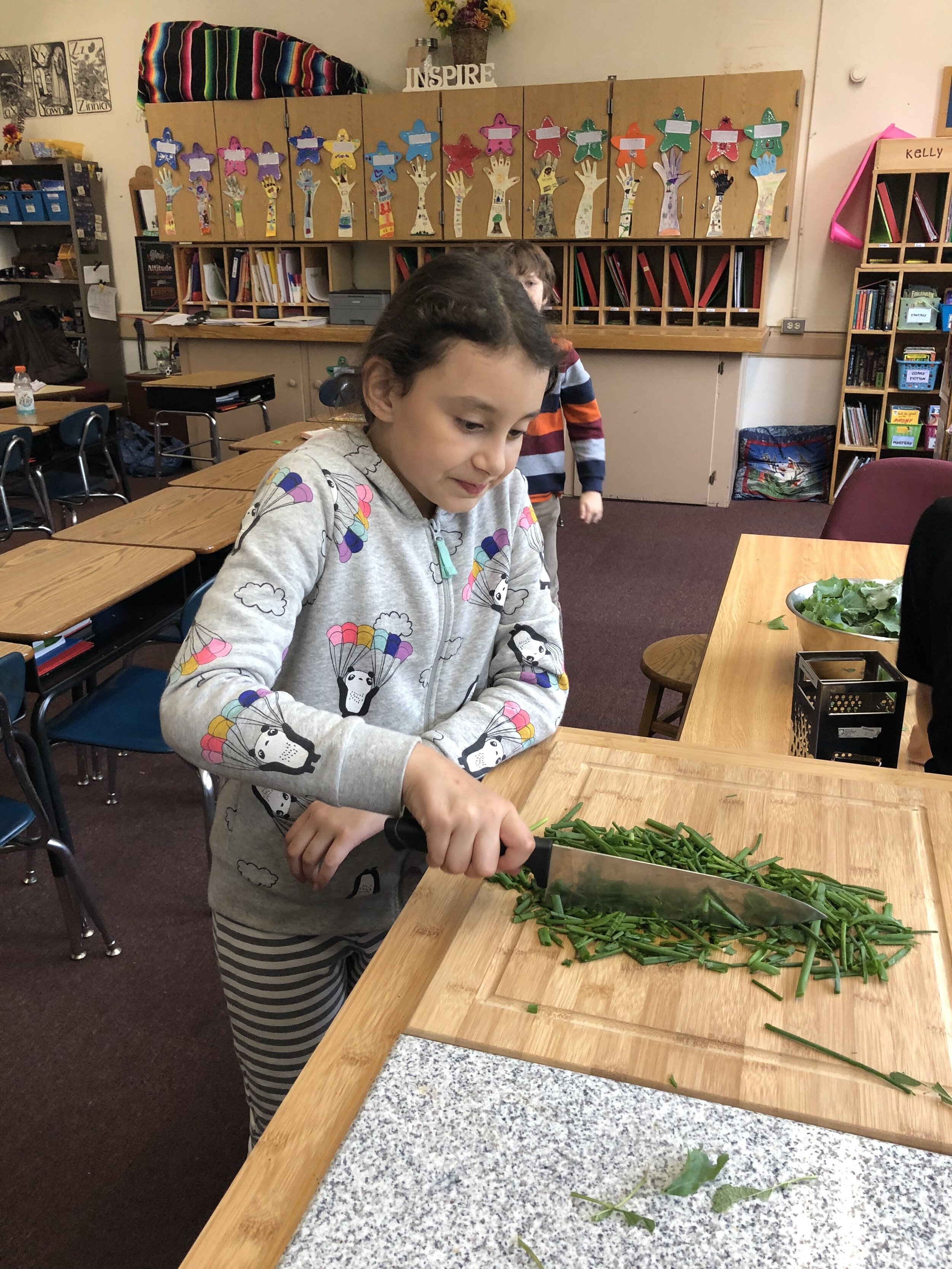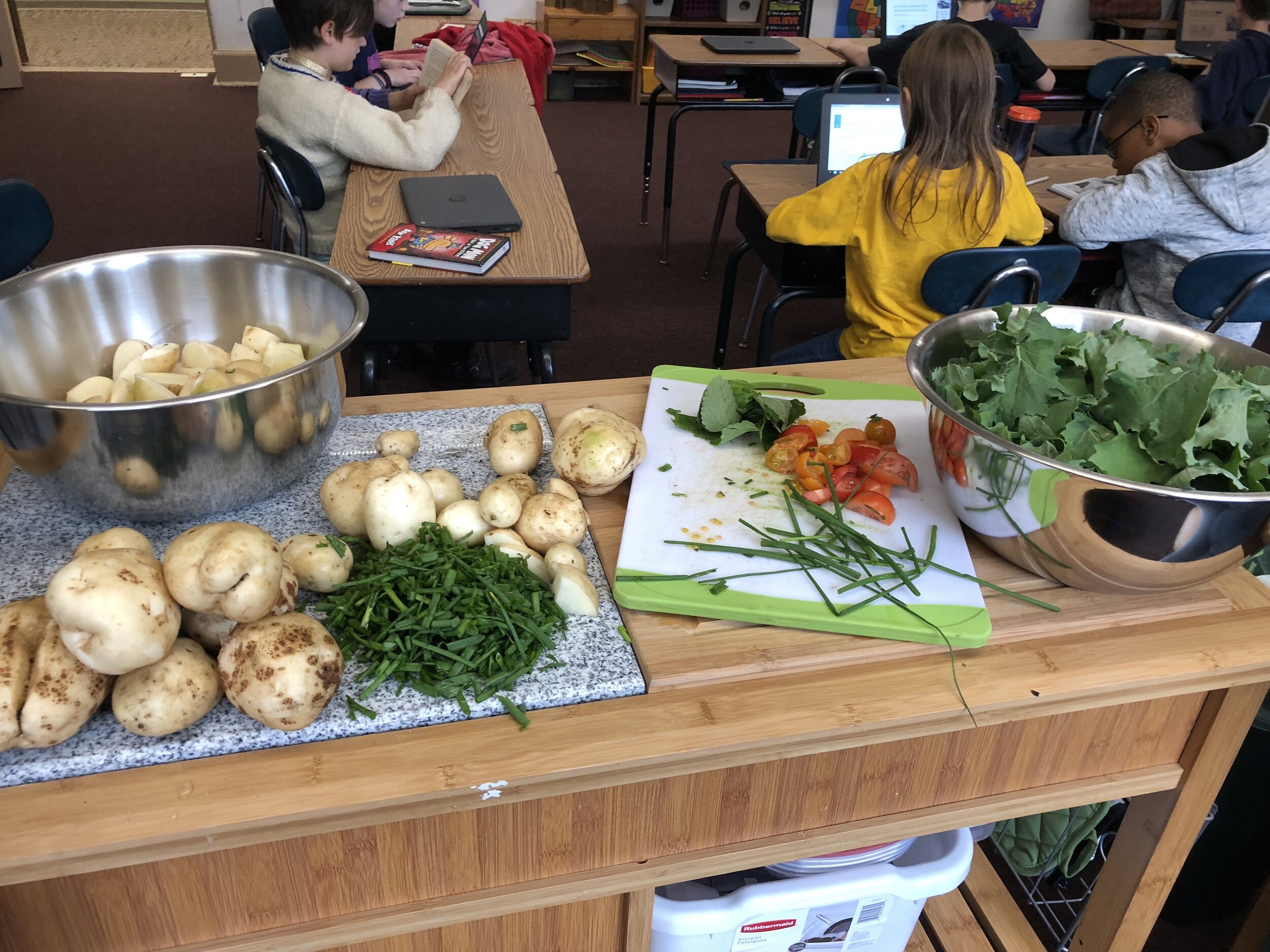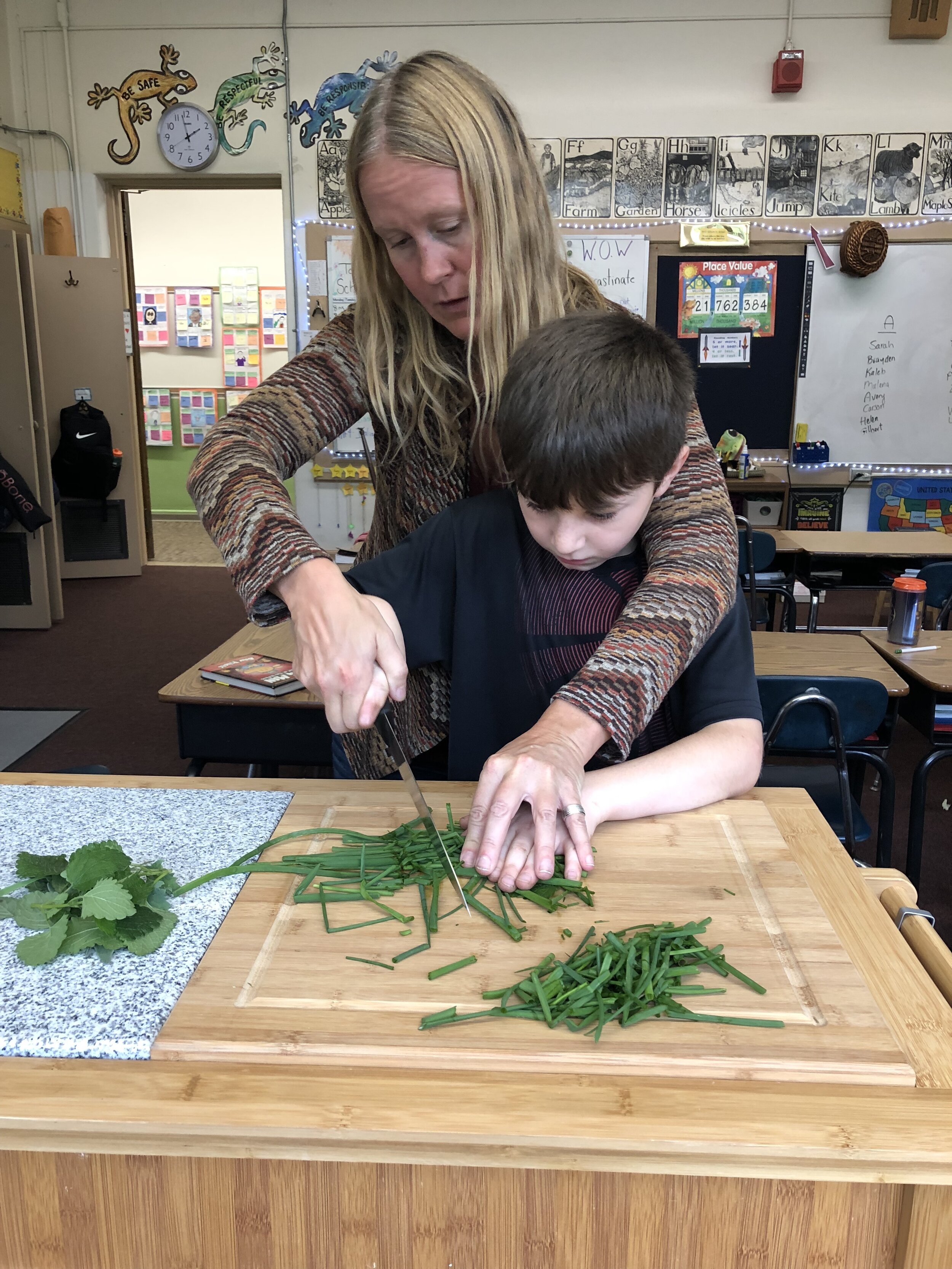Building Resiliency in Brattleboro Town Schools with help from the Thompson Trust
With the support of a $20,000 2-year grant from the Thompson Trust, Food Connects is excited to deepen our work in the Brattleboro Town Schools, strengthening nutrition and Farm to School programming as part of an effort to develop a Trauma-Informed approach to education in the Brattleboro Town Schools.
Trauma-Informed education provides support for students with high Adverse Childhood Experiences (ACE) scores. The ACE study measures 10 types of childhood trauma, including abuse, neglect (including persistent food insecurity), domestic violence, separation or divorce, substance abuse, mental illness, and incarceration. As ACE scores increase, so does the risk of disease, social, and emotional problems. The traumatic stress experienced by children with ACE scores of 4 or more has been linked to risky health behaviors, chronic health conditions, low life potential, and early death. Brattleboro Town Schools are actively engaged in conversations about how to support these students to have better outcomes, and we are proud to partner with them in this important work.
The objectives of this grant are to improve faculty & staff understanding of the connection between nutrition and trauma, to increase schools' capacity for coordinating food and trauma education and activities, and to strengthen local food purchasing and promotion by school cafeterias.
Collaborating with the Vermont Department of Health to Bring Healthier Food to Brattleboro Schools
In partnership with the VT Department of Health, we've been awarded $4,900 in funding to increase food access and improve student nutrition in Brattleboro schools. We will provide additional support to the food service staff at BUHS, BAMS, and the Brattleboro Towns Schools. Key activities will include: 1) purchasing kitchen equipment that will aid in the processing of more whole, fresh ingredients 2) investing in school meal marketing materials to promote school meals to kids and families, and 3) technical assistance provided to food service professionals around menu planning, marketing, and related activities, and technical assistance provided to food service professionals around menu planning, marketing, and related activities.
We’re looking forward to digging deeper into the relationship between trauma and food and exploring how school gardens, community harvest celebrations, and healthier food choices in the cafeteria can nurture the most vulnerable students in our community and help them to grow and flourish!





